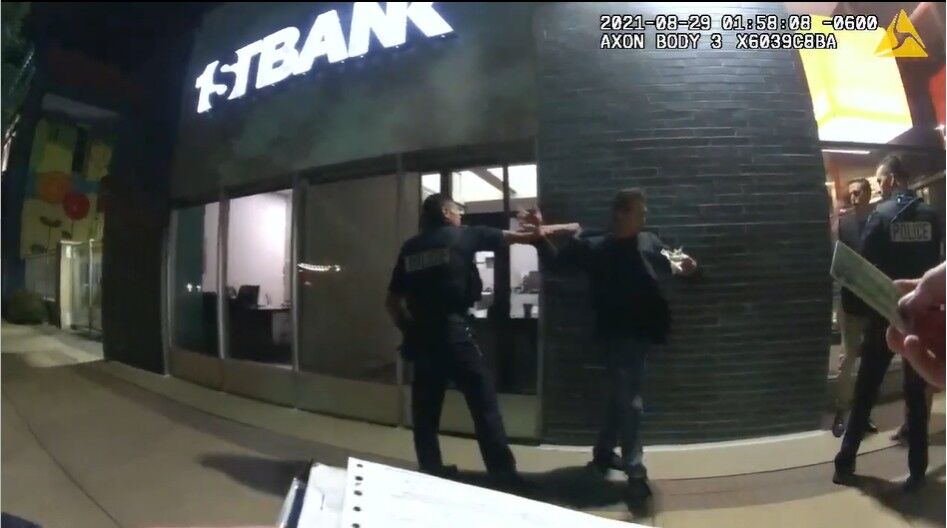10th Circuit: 60 days means 60 days to voluntarily deport

If a noncitizen has 60 days to leave the country or else ask for review of his immigration case, there is no grace period if the final day falls on a weekend, the federal appeals court based in Denver ruled last month.
Addressing an issue that had only surfaced in one other appellate court, the U.S. Court of Appeals for the 10th Circuit concluded the law clearly requires noncitizens to depart by the 60th day of their voluntary deportation period, regardless of weekends or holidays, and even if would they normally have until the next business day to file a motion in their case.
“That ‘day’ is applied in one manner when filing appeals, motions, or other documents in immigration court … and another when interpreting a maximum time period designated by statute, makes sense,” wrote Senior Judge Paul J. Kelly Jr. in the opinion of a three-judge appellate panel.
The decision places the 10th Circuit in conflict with its sibling court, the San Francisco-based Ninth Circuit, which previously interpreted federal law to contain the grace period.
Case: Monsalvo Velázquez v. Garland
Decided: September 8, 2023
Jurisdiction: Board of Immigration Appeals
Ruling: 3-0
Judges: Paul J. Kelly Jr. (author)
Robert E. Bacharach
Joel M. Carson III
In the underlying case, Hugo Abisai Monsalvo Velázquez entered the U.S. from Mexico in 2005 without authorization. In 2011, U.S. Immigration and Customs Enforcement initiated deportation proceedings. Although Monsalvo Velázquez feared he would be subjected to violence upon his return to Mexico, an immigration judge in Denver concluded he was not eligible for relief and ordered him deported in 2019.
However, the judge permitted Monsalvo Velázquez 60 days to voluntarily depart, which would eliminate many negative consequences that accompany court-ordered deportation. If Monsalvo Velázquez did not leave, however, he would be ineligible to remain in the country for 10 years and would pay a $3,000 fine, the judge warned.
Monsalvo Velázquez appealed the immigration judge’s decision and the Board of Immigration Appeals upheld it on Oct. 12, 2021, restarting the 60-day voluntary deportation clock. The 60th day fell on Saturday, Dec. 11, but Monsalvo Velázquez filed a motion on Monday, Dec. 13 to reopen the case. The board denied it, pointing out the request came two days beyond the window.
On appeal to the 10th Circuit, Monsalvo Velázquez argued immigration authorities treat deadlines that fall on a weekend or holiday as rolling over to the next business day, so the voluntary departure date should be no different.
“The period cannot be extended beyond 60 days. The question here is what ‘days’ means,” attorney Henry D. Hollithron told the appellate panel during oral arguments. “How do we compute days?”
Members of the panel were skeptical that “days” could exclude weekends.
“This isn’t a filing deadline. This is a deadline for your client to be out of the country,” said Judge Joel M. Carson III. “On Sunday, could ICE have showed up at his house and arrested him and deported him?”
In support of Monsalvo Velázquez’s argument was a 2011 decision of the Ninth Circuit in favor of recognizing a grace period. If a noncitizen must file a motion before a deadline that falls on the weekend, the court reasoned, it would have the effect of shortening the voluntary departure window.
Judge Robert E. Bacharach acknowledged there was some logic to syncing the voluntary departure timeline with the process for filing documents in legal proceedings, which does account for a grace period.
“It’s customary now that if you have a deadline to file a document and it’s on Saturday or Sunday, it’s always extended until Monday, even though no one actually comes into courthouses anymore to file things,” he observed.
However, the panel ultimately concluded it could not interpret “60 days” to include extra weekend or holiday days. Kelly elaborated that the Ninth Circuit had effectively given noncitizens 61 or 62 days to stay in the country and ask for reconsideration of their deportation decision.
“We acknowledge that though voluntary departure shields an individual from the harsh consequences of a removal order, accepting relief in this form requires careful consideration, given the significant consequences for failure to timely depart,” Kelly wrote in the Sept. 8 opinion.
He added that noncitizens in Monsalvo Velázquez’s shoes face the difficult options of leaving within the voluntary period and remaining eligible to reenter the country, or else pursuing their case further and experiencing forced removal if they lose.
“While perhaps harsh, they are compelled by statute,” Kelly concluded.
The case is Monsalvo Velázquez v. Garland.














